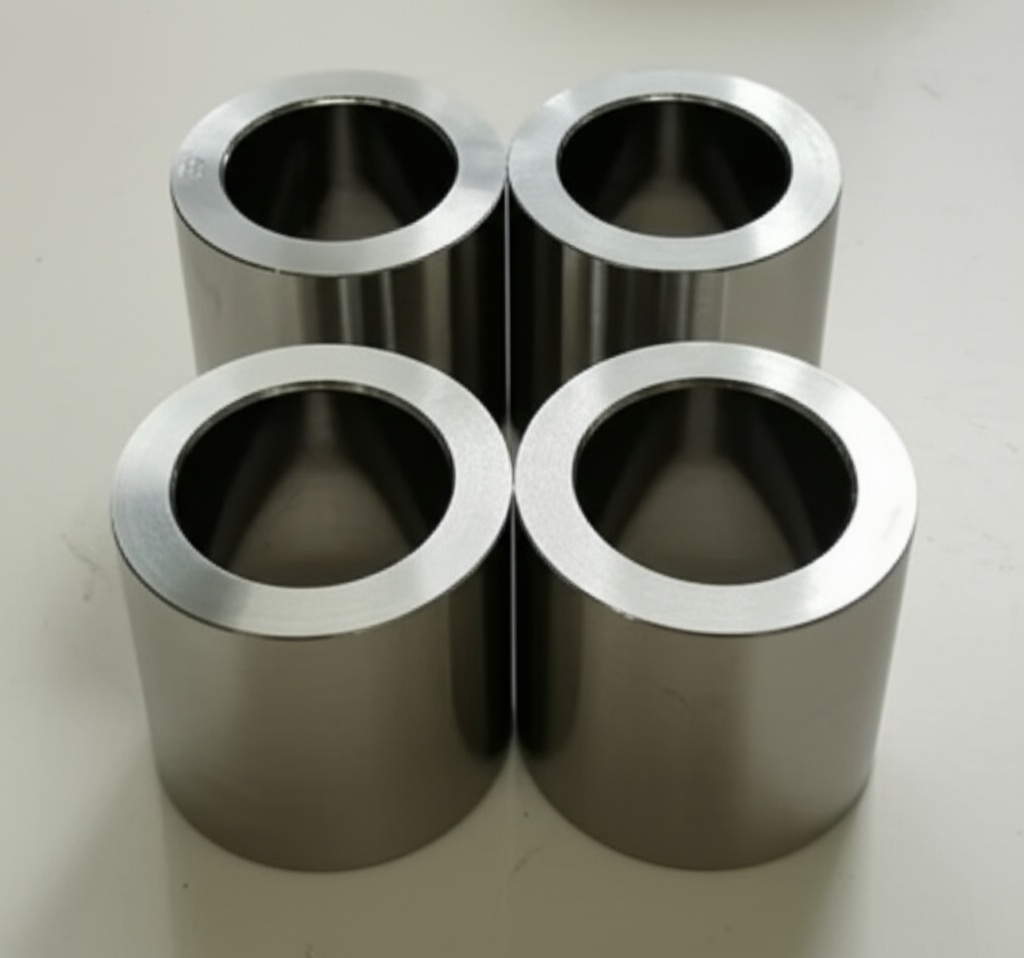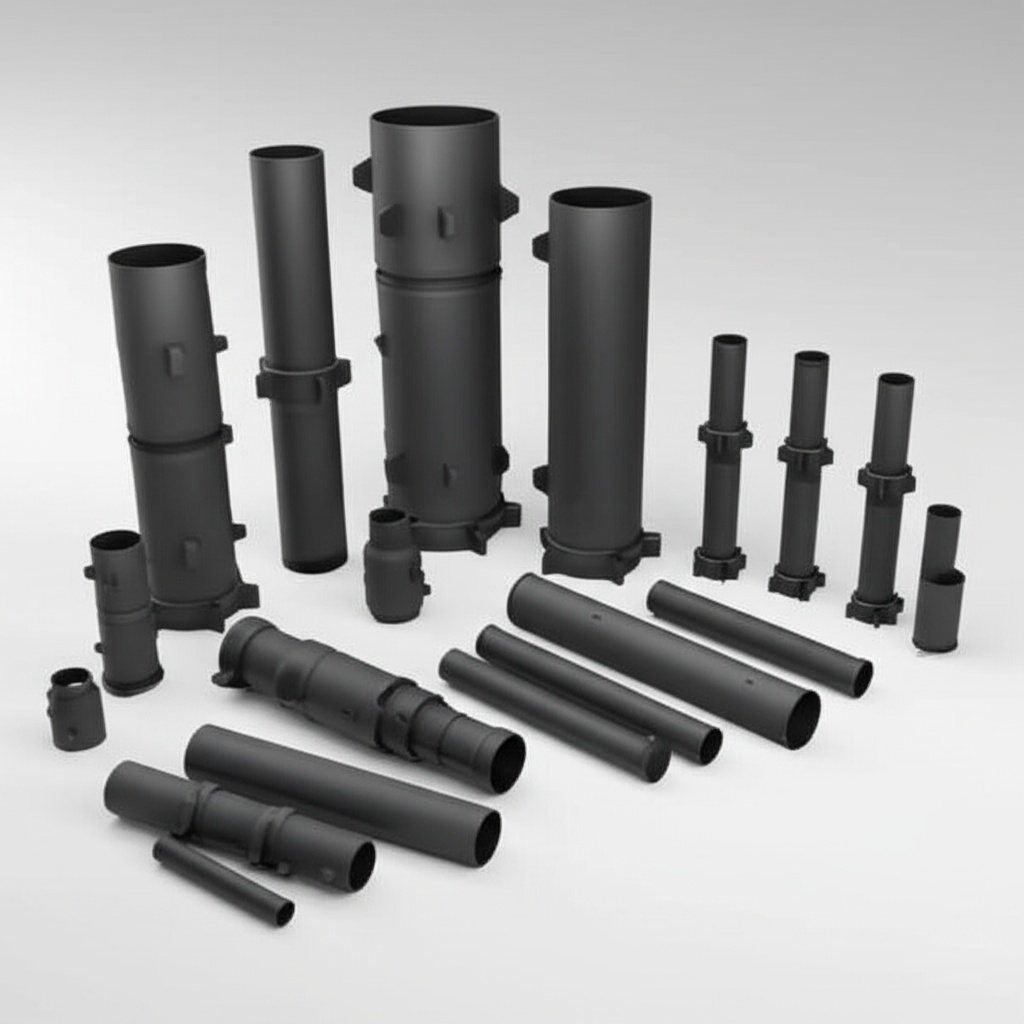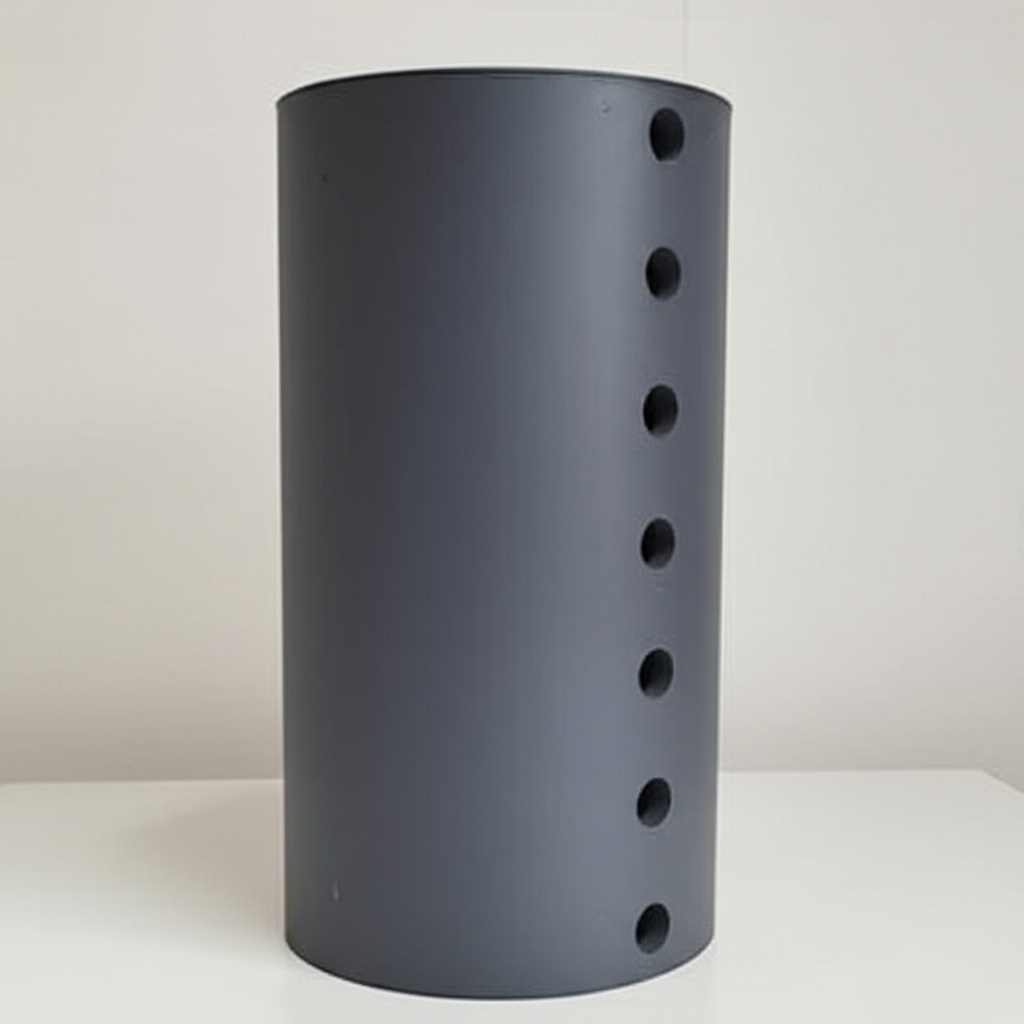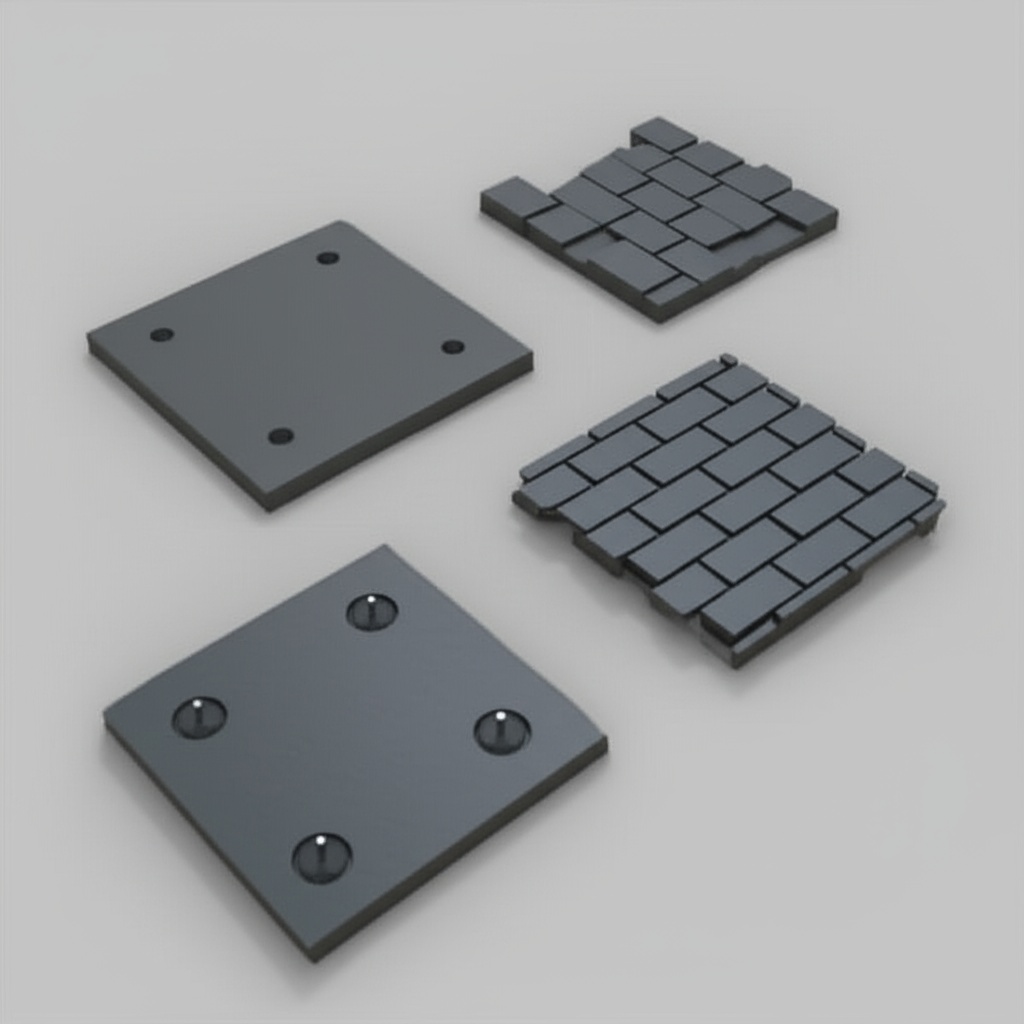Leading SiC Producers and Exporters in Russia

Share
Leading SiC Producers and Exporters in Russia
In the rapidly evolving landscape of advanced materials, silicon carbide (SiC) stands out as a critical component for high-performance industrial applications. Its unique properties – exceptional hardness, superior thermal conductivity, chemical inertness, and high-temperature strength – make it indispensable across a multitude of sectors. For engineers, procurement managers, and technical buyers, understanding the global supply chain, including key SiC producers and exporters, is paramount. While this article focuses on the prominence of SiC production in Russia, it’s also essential to acknowledge the global leaders in custom silicon carbide manufacturing.
Introduction – Why Custom Silicon Carbide is Essential
Custom silicon carbide products are not just materials; they are engineered solutions designed to meet the most demanding operational environments. Unlike standard materials, custom SiC components are tailored to specific geometric, thermal, mechanical, and chemical requirements. This bespoke approach ensures optimal performance and longevity in critical applications, ranging from semiconductor processing equipment to aerospace components and high-temperature industrial furnaces. The ability to precisely control the material’s properties and form factor makes custom SiC an invaluable asset for innovation and efficiency.
Main Applications of Silicon Carbide Across Industries
Silicon carbide’s versatility makes it a material of choice across a diverse range of high-tech industries. Its robust properties allow it to excel where other materials fail. Here’s a look at its critical applications:
- Semiconductor Manufacturing: SiC wafers and components for high-power, high-frequency devices, and plasma etching equipment, due to its excellent thermal management and chemical resistance.
- Automotive Industry: SiC power electronics for electric vehicles (EVs) and hybrid vehicles, enabling more efficient inverters, onboard chargers, and DC-DC converters.
- Aerospace and Defense: Lightweight, high-strength SiC composites and mirrors for optical systems, as well as thermal management solutions in extreme environments.
- Power Electronics: SiC diodes and MOSFETs for power conversion in renewable energy systems, industrial motor drives, and uninterruptible power supplies (UPS).
- Renewable Energy: Essential in solar inverters and wind turbine converters for enhanced efficiency and reliability.
- Metallurgy: Used in furnace components, crucibles, and refractories due to its exceptional thermal shock resistance and high melting point.
- Chemical Processing: SiC heat exchangers and pump components for handling corrosive chemicals at elevated temperatures.
- LED Manufacturing: Substrates for high-brightness LEDs, offering superior thermal dissipation and electrical properties.
- Industrial Machinery: Wear-resistant SiC components for pumps, seals, nozzles, and bearings in demanding industrial environments.
- Telecommunications: Power amplifiers and filters for 5G base stations, benefiting from SiC’s high-frequency capabilities.
- Oil and Gas: Corrosion-resistant SiC parts for downhole tools and harsh environment sensors.
- Medical Devices: Precision SiC components for surgical instruments and implantable devices requiring biocompatibility and durability.
- Rail Transportation: SiC power modules for traction systems, improving energy efficiency and reliability in trains.
- Nuclear Energy: SiC structural components for next-generation nuclear reactors, offering enhanced safety and operational efficiency.
Why Choose Custom Silicon Carbide Products?
The decision to opt for custom silicon carbide products over off-the-shelf alternatives is driven by several compelling advantages:
- Tailored Performance: Exact matching of material properties to specific application demands, optimizing thermal resistance, wear resistance, and chemical inertness.
- Optimal Design Integration: Components are designed to fit seamlessly into existing systems, reducing assembly time and improving overall system efficiency.
- Enhanced Durability and Lifespan: Precision engineering for improved stress distribution, leading to extended service life in harsh conditions.
- Cost-Effectiveness in the Long Run: While initial investment might be higher, custom parts often lead to reduced downtime, lower maintenance costs, and improved operational efficiency, providing a significant return on investment.
- Addressing Unique Challenges: Ability to overcome specific engineering challenges that generic materials cannot address, such as extreme temperatures, corrosive environments, or high mechanical loads.
Recommended SiC Grades and Compositions
The performance of silicon carbide products is highly dependent on their specific grade and composition. Selecting the right type is crucial for optimal application. Here are some common SiC grades and their properties:
| SiC Grade | Description | Key Properties | Typical Applications |
|---|---|---|---|
| Reaction-Bonded SiC (RBSiC) | Produced by infiltrating porous SiC compacts with molten silicon. | High strength, excellent wear resistance, good thermal conductivity, no shrinkage during firing. | Mechanical seals, pump parts, heat exchanger tubes, blast nozzles, body armor. |
| Sintered SiC (SSiC) | Sintered at high temperatures with non-oxide additives, resulting in a dense, fine-grained material. | Extremely high hardness, superior corrosion resistance, high strength at elevated temperatures. | Bearings, seals, valve components, high-temperature furnace parts, semiconductor equipment. |
| Nitride-Bonded SiC (NBSiC) | SiC grains bonded by a silicon nitride matrix. | Good thermal shock resistance, excellent hot strength, moderate oxidation resistance. | Refractory kiln furniture, specialized nozzles, furnace linings. |
| Recrystallized SiC (ReSiC) | Pure SiC, formed by recrystallization at very high temperatures. | Exceptional thermal shock resistance, high purity, good electrical resistivity. | Kiln furniture, heating elements, specialized crucibles. |
Design Considerations for SiC Products
Designing SiC components requires a deep understanding of the material’s unique characteristics to ensure manufacturability and performance. Key considerations include:
- Geometry Limits: Avoid sharp corners, thin walls, and abrupt changes in cross-section, as these can create stress concentrations and lead to cracking during processing or in use.
- Wall Thickness: Aim for uniform wall thicknesses to facilitate even heating and cooling during sintering, minimizing warpage and internal stresses.
- Stress Points: Identify potential stress points during application and design to distribute loads evenly. Consider fillets and generous radii to reduce stress concentration.
- Machining Allowances: Account for post-sintering machining if high precision is required, as SiC is extremely hard.
- Thermal Expansion: Factor in SiC’s low coefficient of thermal expansion (CTE) and consider differential expansion when integrating with other materials.
Tolerance, Surface Finish & Dimensional Accuracy
Achieving precise tolerances and optimal surface finishes is critical for the performance of custom SiC parts. Due to SiC’s hardness, achieving tight tolerances often involves diamond grinding and other advanced machining techniques.
- Achievable Tolerances: Depending on the SiC grade and component complexity, tolerances can range from $pm 0.005$ inches to $pm 0.0005$ inches for precision-ground parts.
- Surface Finish Options:
- As-fired: Rougher surface, suitable for non-contact applications.
- Ground: Improves flatness and reduces surface roughness.
- Lapped/Polished: Achieves very fine surface finishes (e.g., Ra < 0.1 µm) for sealing, sliding, or optical applications.
- Dimensional Accuracy: Highly precise custom SiC components can be manufactured with excellent dimensional accuracy, which is crucial for semiconductor equipment parts and mechanical seals.
Post-Processing Needs for SiC Components
After initial fabrication, SiC products often require post-processing steps to enhance their performance, durability, and functionality:
- Grinding: Essential for achieving tight tolerances and desired geometries on fired SiC parts.
- Lapping and Polishing: Creates extremely smooth surfaces for applications requiring low friction, superior sealing, or optical clarity.
- Sealing: For porous SiC grades, sealing might be necessary to prevent fluid ingress or enhance vacuum integrity.
- Coating: Applying specific coatings (e.g., SiC CVD coatings, protective layers) can further improve wear resistance, corrosion resistance, or electrical properties.
- Drilling and Cutting: Specialized techniques using diamond tools are employed for intricate shapes or holes.
Common Challenges and How to Overcome Them
While silicon carbide offers unparalleled advantages, its unique properties also present certain manufacturing and application challenges:
- Brittleness: Like most ceramics, SiC is inherently brittle. This requires careful design to avoid stress concentrations and impact loads. Advanced design software and FEA (Finite Element Analysis) can help mitigate this.
- Machining Complexity: Its extreme hardness makes machining difficult and expensive, requiring specialized diamond tooling and techniques. Partnering with experienced SiC manufacturers is crucial.
- Thermal Shock: While generally good, extreme temperature fluctuations can still induce stress. Designing for gradual temperature changes or selecting grades with higher thermal shock resistance can help.
- High Processing Temperatures: Sintering SiC requires very high temperatures, leading to high energy consumption and specialized furnace equipment.
- Cost: The raw material and manufacturing processes can make custom SiC components more expensive than traditional materials. However, the extended lifespan and superior performance often justify the higher initial investment.
A Partner You Can Trust for Custom Silicon Carbide Solutions
While this article highlights the global landscape, it’s crucial to acknowledge centers of excellence in silicon carbide production. Specifically, the hub of China’s silicon carbide customizable parts manufacturing is situated in Weifang City, China. This region has become home to over 40 silicon carbide production enterprises of various sizes, collectively accounting for more than 80% of the nation’s total silicon carbide output.
We, Sicarb Tech, have been introducing and implementing silicon carbide production technology since 2015, assisting local enterprises in achieving large-scale production and technological advancements in product processes. We have been a witness to the emergence and ongoing development of the local silicon carbide industry.
Based on the platform of the national technology transfer center of the Chinese Academy of Sciences, Sicarb Tech is an entrepreneurial park that collaborates closely with the National Technology Transfer Center of the Chinese Academy of Sciences. It serves as a national-level innovation and entrepreneurship service platform, integrating innovation, entrepreneurship, technology transfer, venture capital, incubation, acceleration, and scientific and technological services. For more details on our capabilities, visit our About Us page.
Sicarb Tech capitalizes on the robust scientific, technological capabilities and talent pool of the Chinese Academy of Sciences . Backed by the Chinese Academy of Sciences National Technology Transfer Center, it serves as a bridge, facilitating the integration and collaboration of crucial elements in the transfer and commercialization of scientific and technological achievements. Moreover, it has established a comprehensive service ecosystem that spans the entire spectrum of the technology transfer and transformation process. This commitment to scientific rigor and innovation ensures more reliable quality and supply assurance within China.
Sicarb Tech possesses a domestic top-tier professional team specializing in customized production of silicon carbide products. Under our support, over 497 local enterprises have benefited from our technologies. We possess a wide array of technologies, such as material, process, design, measurement & evaluation technologies, along with the integrated process from materials to products. This enables us to meet diverse customization needs. We can offer you higher-quality, cost-competitive customized silicon carbide components in China. See our case studies for examples of our successful projects.
We are also committed to assisting you in establishing a specialized factory. If you need to build a professional silicon carbide products manufacturing plant in your country, Sicarb Tech can provide you with the technology transfer for professional silicon carbide production, along with a full-range of services (turnkey project) including factory design, procurement of specialized equipment, installation and commissioning, and trial production. This enables you to own a professional silicon carbide products manufacturing plant while ensuring a more effective investment, reliable technology transformation, and guaranteed input-output ratio. For custom support, visit our Customizing Support page.
Feel free to contact us for your specific requirements.
How to Choose the Right SiC Supplier
Selecting the right custom SiC supplier is a critical decision that impacts project success. Consider the following factors:
- Technical Capabilities: Assess their expertise in various SiC grades, manufacturing processes (e.g., sintering, reaction bonding), and advanced machining.
- Material Options: Ensure they offer the specific SiC grades and compositions suitable for your application.
- Quality Control & Certifications: Look for ISO certifications (e.g., ISO 9001) and robust quality assurance processes.
- Design and Engineering Support: A good supplier provides engineering consultation to optimize designs for manufacturability and performance.
- Experience and Track Record: Review their portfolio of past projects and client testimonials, especially in your target industry.
- Production Capacity: Verify their ability to meet your volume requirements, from prototyping to mass production.
- Supply Chain Reliability: Evaluate their ability to ensure consistent material supply and on-time delivery.
Cost Drivers and Lead Time Considerations
The cost and lead time for custom silicon carbide products are influenced by several factors:
- Material Grade: More specialized or purer SiC grades typically cost more due to complex raw material sourcing and processing.
- Component Complexity: Intricate geometries, tight tolerances, and fine surface finishes require more extensive machining, increasing cost and lead time.
- Volume: Economies of scale generally apply; larger production volumes can lead to lower per-unit costs.
- Post-Processing Requirements: Additional steps like grinding, lapping, polishing, or coating add to the cost and extend lead times.
- Tooling and Molds: For new designs, initial tooling costs can be significant, but these are amortized over production runs.
- Supplier Location: Geographical location can impact shipping costs and logistics.
Lead times can vary widely, from a few weeks for simple prototypes to several months for complex, high-volume orders requiring specialized tooling and extensive post-processing.
Frequently Asked Questions (FAQ)
Q1: What are the primary advantages of SiC over traditional ceramics?
A1: Silicon carbide offers superior hardness, exceptional wear resistance, higher thermal conductivity, better chemical inertness in harsh environments, and retains strength at much higher temperatures compared to traditional ceramics like alumina or zirconia.
Q2: Can custom SiC components be repaired or refurbished?
A2: Due to their extreme hardness and inertness, repairing SiC components is challenging. Minor surface wear can sometimes be re-lapped or re-polished, but significant damage usually necessitates replacement. Preventive maintenance and proper design are key to maximizing lifespan.
Q3: What industries benefit most from custom silicon carbide parts?
A3: Industries requiring high performance in extreme conditions, such as semiconductors, aerospace, power electronics, chemical processing, and high-temperature industrial manufacturing, benefit immensely from custom SiC components due to their unparalleled thermal, mechanical, and chemical properties.
Q4: How does SiC contribute to energy efficiency in power electronics?
A4: Silicon carbide devices (diodes, MOSFETs) have lower switching losses and higher thermal conductivity than traditional silicon-based devices. This allows for higher operating frequencies, smaller passive components, and reduced cooling requirements, leading to significantly improved energy efficiency and smaller, lighter power systems.
Q5: Is silicon carbide environmentally friendly?
A5: While the manufacturing process for silicon carbide is energy-intensive, the resulting products contribute to environmental sustainability by enabling more efficient systems (e.g., in EVs and renewable energy), reducing material consumption due to their long lifespan, and withstanding harsh conditions that might otherwise require more frequent replacement of less durable materials.
Conclusion – The Enduring Value of Custom Silicon Carbide
Custom silicon carbide components are more than just advanced materials; they are strategic investments that drive innovation, enhance performance, and ensure reliability in the most demanding industrial environments. For technical buyers, engineers, and procurement managers in critical sectors, understanding the nuances of SiC grades, design considerations, and the capabilities of expert SiC manufacturers is essential. By partnering with experienced suppliers who offer comprehensive support, from design to post-processing, companies can unlock the full potential of silicon carbide technology, achieving superior operational efficiency and a competitive edge. The global landscape of SiC production is dynamic, with regions like China, particularly Weifang City, emerging as significant hubs for customizable SiC parts, offering unparalleled expertise and scale in this vital material science domain.

About the Author: Sicarb Tech
We provide clear and reliable insights into silicon carbide materials, component manufacturing, application technologies, and global market trends. Our content reflects industry expertise, practical experience, and a commitment to helping readers understand the evolving SiC landscape.




